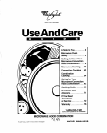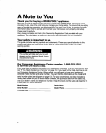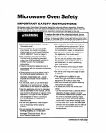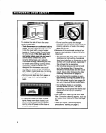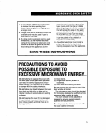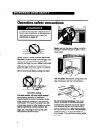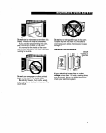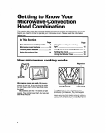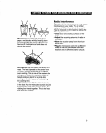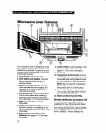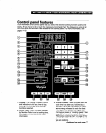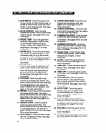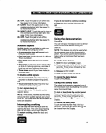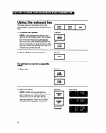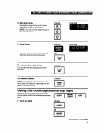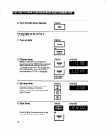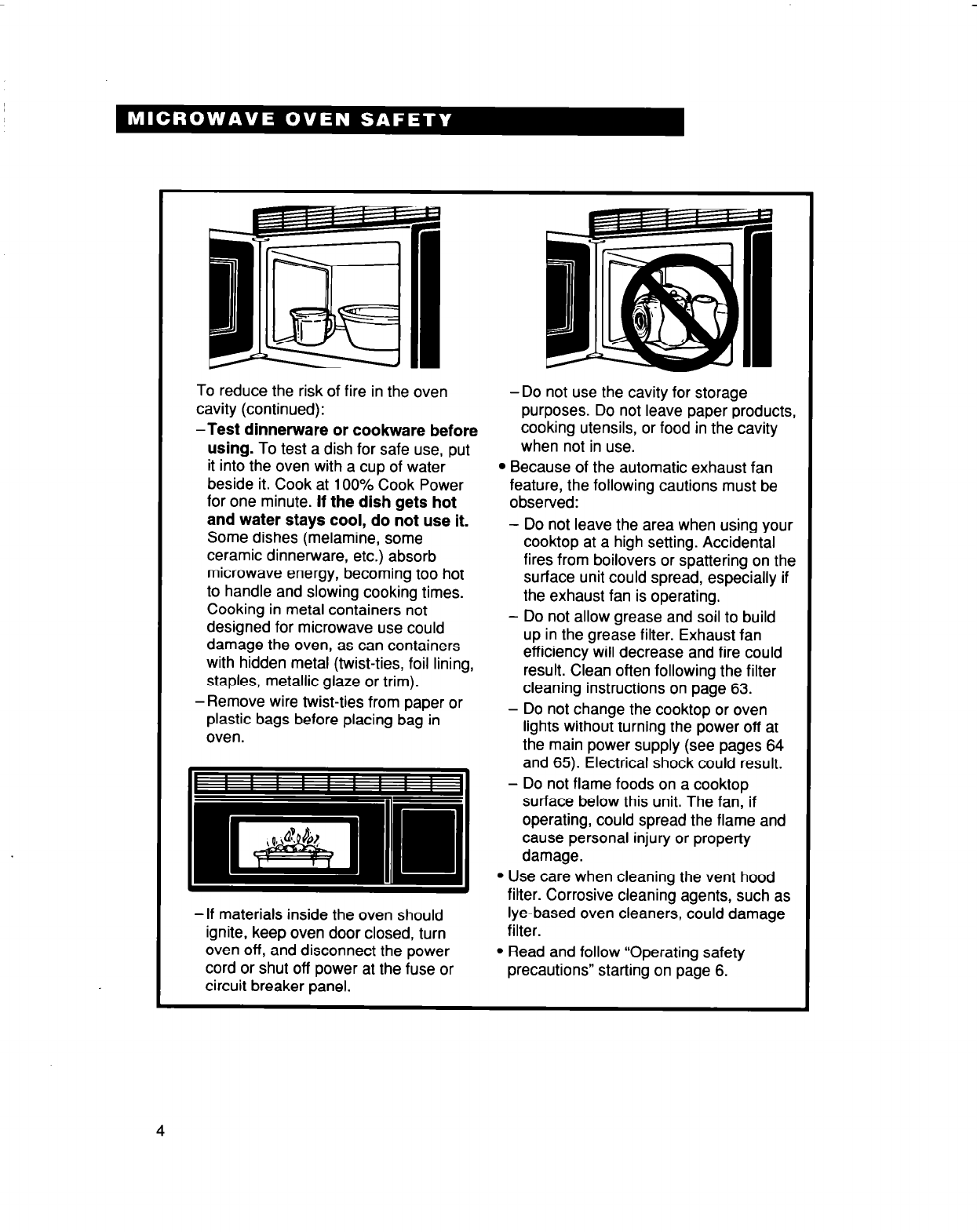
To reduce the risk of fire in the oven -Do not use the cavity for storage
cavity (continued):
purposes. Do not leave paper products,
-Test dinnerware or cookware before
cooking utensils, or food in the cavity
using. To test a dish for safe use, put
when not in use.
it into the oven with a cup of water l Because of the automatic exhaust fan
beside it. Cook at 100% Cook Power
feature, the following cautions must be
for one minute. If the dish gets hot observed:
and water stays cool, do not use it.
Some dishes (melamine, some
- Do not leave the area when using your
ceramic dinnerware, etc.) absorb
cooktop at a high setting. Accidental
microwave energy, becoming too hot
fires from boilovers or spattering on the
to handle and slowing cooking times.
surface unit could spread, especially if
Cooking in metal containers not
the exhaust fan is operating.
designed for microwave use could
- Do not allow grease and soil to build
damage the oven, as can containers
up in the grease filter. Exhaust fan
with hidden metal (twist-ties, foil lining,
efficiency will decrease and fire could
staples, metallic glaze or trim).
result. Clean often following the filter
-Remove wire twist-ties from paper or
cleaning instructions on page 63.
plastic bags before placing bag in
- Do not change the cooktop or oven
oven.
lights without turning the power off at
the main power supply (see pages 64
and 65). Electrical shock could result.
- Do not flame foods on a cooktop
surface below this unit. The fan, if
operating, could spread the flame and
cause personal injury or property
damage.
-If materials inside the oven should
ignite, keep oven door closed, turn
oven off, and disconnect the power
cord or shut off power at the fuse or
circuit breaker panel.
l Use care when cleaning the vent hood
filter. Corrosive cleaning agents, such as
lye-based oven cleaners, could damage
filter.
l Read and follow “Operating safety
precautions” starting on page 6.
4



